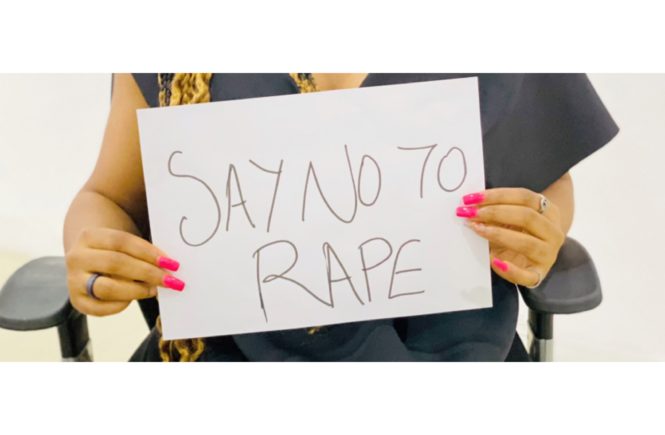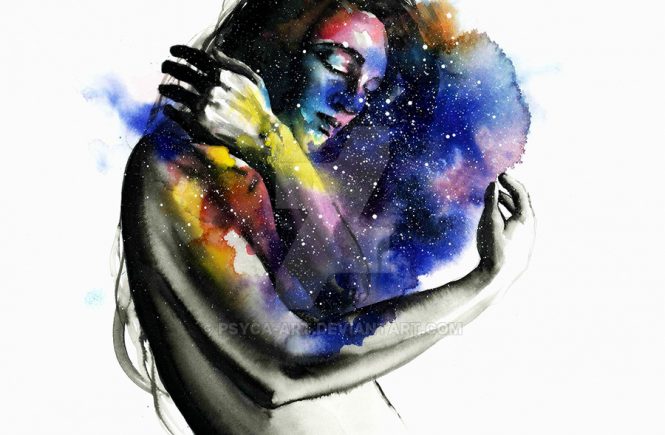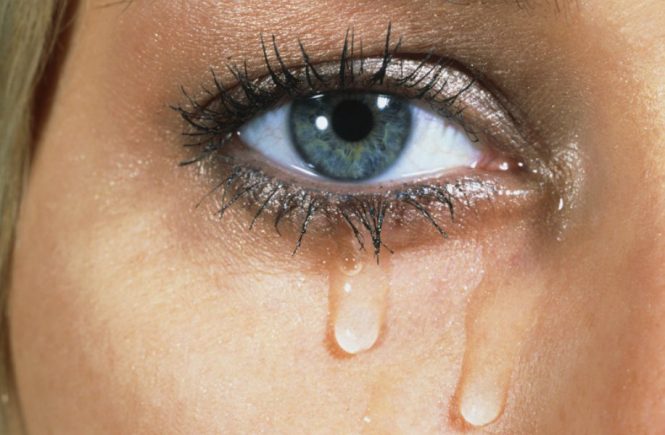Although there is absolutely no logical reason for rape, it is saddening to see the alarming rate at which the evil of rape is being perpetrated in Nigeria and across the world. Almost every week, there is a report of sexual violence, especially the rape of girls and women in Nigeria. Rape is perpetrated in all segments of society from the home, the education system, the workplace, the nation’s armed services, to even places of worship. This is truly sad as many people, over 40% of the nation’s populace, consider places of worship as a second home.
A lot of rape cases have made the headlines. There is a case of a man raping his childhood friend during the lockdown. The most recent is the case of a 22-year-old student, Uwavera Omozuwa, who was raped and murdered in a church. The magnitude of the issue of rape is overwhelming.
However, there seems to be poor proper documentation of this magnitude. For instance, on this stat, the last record was in 2014. However, based on it, “one in four females reported experiencing sexual violence in childhood with approximately 70% reporting more than one incident of sexual violence.” Although the police have helped to arrest the offenders in cases like the ones in Yobe, Ogun, Plateau, Kano, and a number of other states, yet the police who are meant to protect have been perpetrators of rape. Based on a public opinion poll conducted by NOIPolls, offenders include mostly strangers (38%), neighbours (24%), acquaintance of the victims (18%), and relatives (16%). Also, most of the rape incidence happened either at the victim’s residence (36%) or at the offender’s residence (24%).
According to the Minister of Women Affairs and Social Development (FMWASD), Dame Pauline Tallen, on the 2019 International Day for Elimination of Violence Against Women, over two million Nigerian girls and women being raped annually. Although the accuracy of this claim has questioned, it is likely not far from the truth. Therefore, it is high time we adequately addressed this issue and curbed the curve as nobody should ever be raped for any reason.
What Does the Law Have to Say About Rape
First, let’s take a look at how rape is defined under the Nigerian criminal and penal codes. While the criminal code applies to the southern part of the country, the penal code applies to the northern part. According to Section 357 of the Nigerian criminal code applicable to the southern part of Nigeria:
“Any person who has unlawful canal knowledge of a woman or girl without her consent, if the consent is obtained by force or by means of threats or intimidation of any kind or by fear of harm, or by means of false and fraudulent representation as to the nature of the act, or in The case of a married woman, by personating her husband is guilty of An offense which is called rape.”
For the Northern part of Nigeria, rape is defined under Section 282 of the penal code as:
1. “A man is said to commit rape who…has sexual intercourse With a woman in any of the following circumstances: (a) against Her will; (b) obtained by putting her in fear of death or of hurt; (c) With her consent when the man knows that he is not her husband and that her consent is given because she believes that he is the Man to whom she is or believes herself to be lawfully married; (d) With or without her consent when she is under fourteen years Of age or of unsound mind.”
2. “Sexual intercourse by a man with his own wife is not considered as rape, if she has attained to puberty.”
Although the definitions of rape have restricted it to simply a criminal act performed by only men against women, this is not really our focus here. While we recognise that men get raped too, our focus is on other limitations of the law regarding the rape of women, and how effective the law has been.
In light of this, both definitions don’t cover non-penetrative rape, such as oral sex and the use of objects or other instruments. Also, they barely cover marital rape, which exists. It is important to note that the concept of rape exists in different forms, such as anger rape, date rape, elderly rape, gang rape, prison rape, rape of children, rape by deception, sadistic rape, spousal (marital) rape, statutory rape, and war rape. The Nigeria law barely covers all these forms, and this makes the law very inadequate in the struggle to curb the rape menace.
Nigeria’s Criminal Code recommends life imprisonment for those convicted of rape and 14 years for attempted rape. However, as few as 2 out of 40 rape cases are reported in Nigeria, and this makes it hard to estimate the number of rapes committed each year. Looking at the legal history of Nigeria, only fewer than 20 persons have been convicted of the crime. Although there have been arrests and persecutions like the case of the Unilag lecturer sentenced to 21 year in prison, there is more work to be done within the Nigerian legal system to ensure justice for the victims.
What Are We Doing Wrong
It is saddening that a number of rape cases go unreported. Even the ones that get reported are not often recorded in the criminal statistics. Research shows that police statistics never capture the true magnitude of the rape reality. In fact, in a number of cases, police tend to dismiss the rape victim.
Furthermore, the reason for the increase in rape cases in Nigeria includes police corruption, judicial corruption, delays in the judicial system, the demand for solid proof of rape by the victim, stigmatization, family members trying to settle the matter within the family, and fear of attacks and intimidation. In most cases, if the victim cannot provide strong proof of rape, the accused will likely be allowed to walk free and declared innocent. This sad fact seems to empower a lot of rapists.
We seem to be in a world where it is easy to shame victims than to apprehend rapists. It is not surprising that most rape cases go unreported. Issues such as lack of trust, stigmatisation, fear of re-victimization, cultural barriers, religious sentiments, and the victims’ powerlessness of getting justice have silenced victims and strengthened rapists over the years.
Thank God for the media, especially social media (like Twitter), that has empowered rape survivors to come out and speak up as well as identify rapists. The media has helped to solicit societal reactions against rapists. However, sometimes, a rape case simply becomes a trend and seems to fade away after a while as a new trend arises. There is a need for it to be more than just a trend. Real actions need to be taken to apprehend rapists as well as to provide the necessary support for the survivors.
What We Should Be Doing
Last year, the Federal Government launched the Sex Offenders register to tackle issues of rape in Nigeria. However, we need to ensure that offenders are actually recorded on this register. We need accountability and proper documentation, and we hope that relevant agencies will ensure this.
It is the responsibility of everyone, both women and men, to put an end to rape. In the words of the Dame Pauline Tallen,
“Eliminating violence in all its ramifications, is the responsibility of all citizens. For this reason, we must therefore identify our true allies in this journey. The implication is that we have to intensify our efforts, strengthen existing partnership and forge new strategic alliances in addressing some of the challenges of building pathways to sustainable growth and development, and also achieving social justice, which are catalysts to peace, security and national cohesion.”
As citizens, we all have to stand up for more advocacy and support. For instance, the #ArewaMeToo and #ChurchToo movement have been voicing out against rape in Nigeria. We need to stand with such movements and continuously fight against rape.
Also, while male education and advocacy against rape have started, it is still far from being adequate. Parents and society have to teach men to respect a woman’s body, the concept of consent, and the need for self-control. It is important to teach boys that real men will not rape nor support rape, and will always make all necessary efforts to stop rape.
There is also the need for women to take up positions of power and authority so that they can promote and create policies that will be more favourable to girls and women, as well as ensure that these policies are effectively enacted.
At Elsieisy Blog, we stand for justice, and we hope that Uwa and every other rape victims will get the justice they deserve. We urge everyone to stand against rape and help rape victims recover as best as they could. Together, let’s ensure the safety and security of women.





